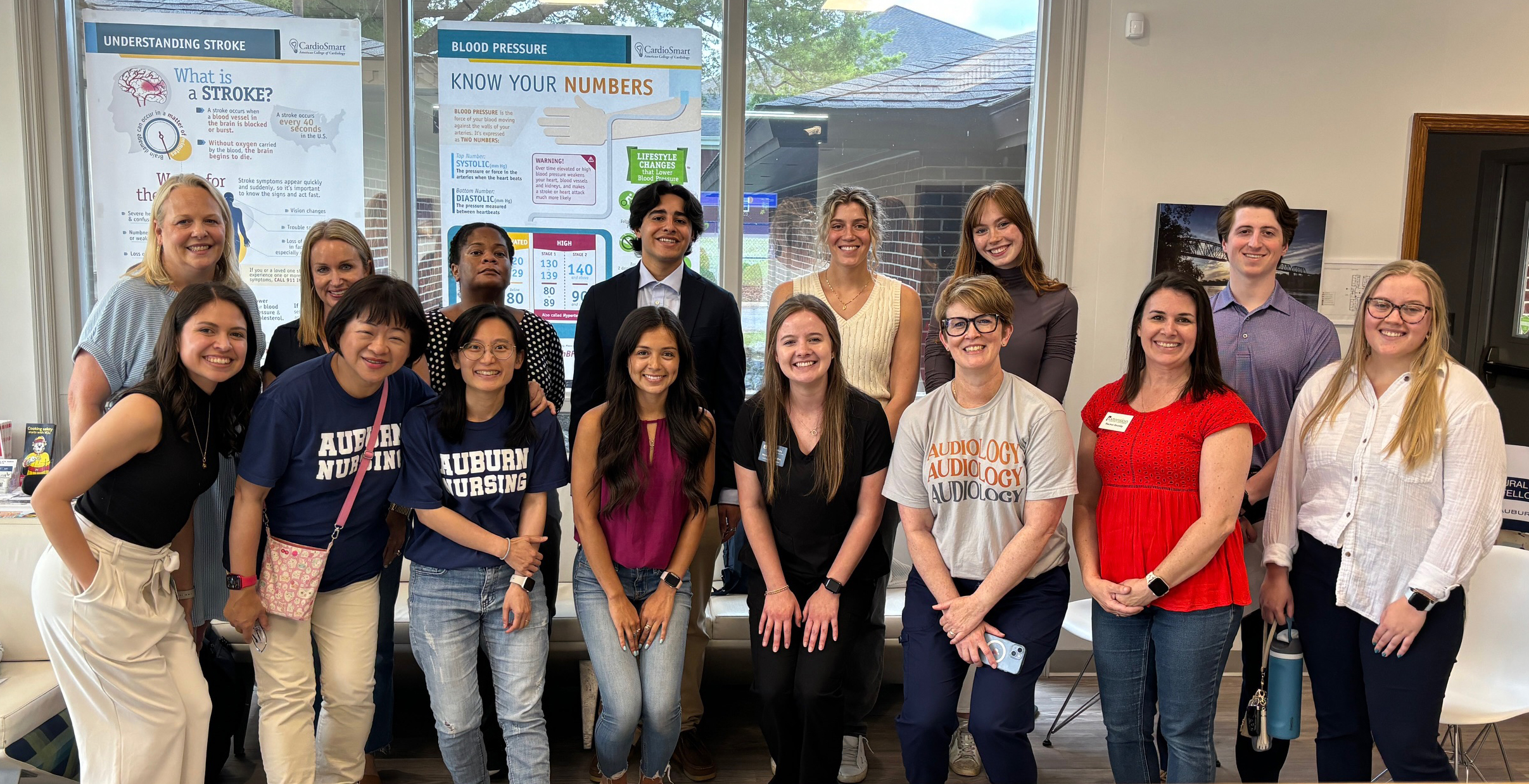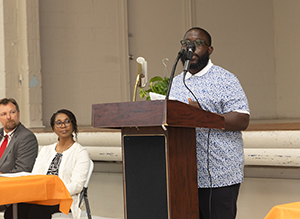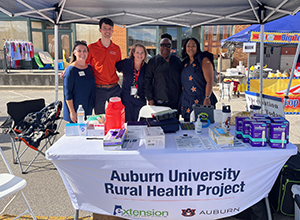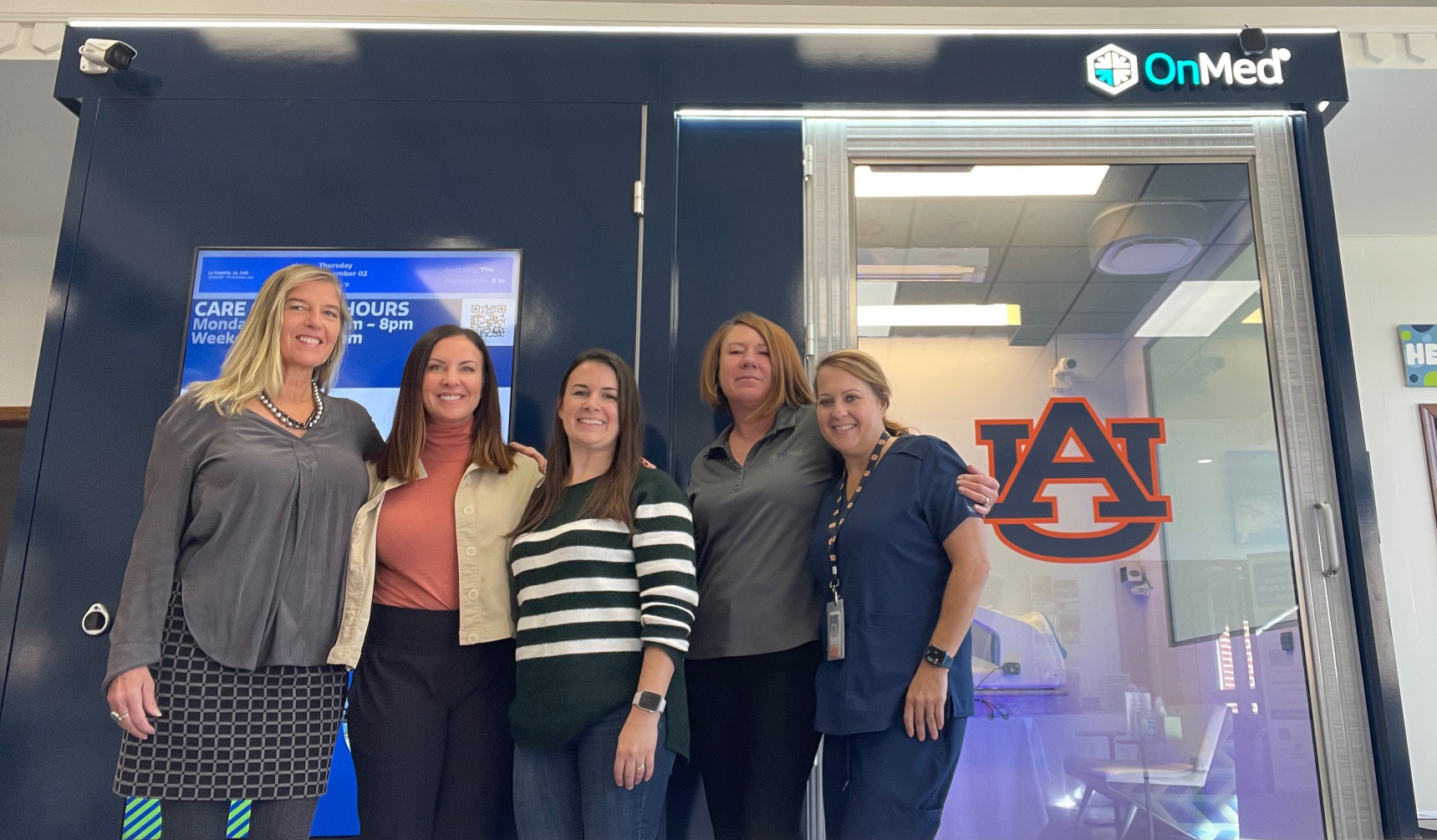Alabama Cooperative Extension System: A Pivotal Partner in Enhancing Rural Healthcare
By: Mikailie Caulder

In rural communities, access to quality healthcare can be challenging. However, through partnerships like the one that began between Auburn University Outreach and the Alabama Cooperative Extension System through the Auburn University Rural Health Initiative, barriers are being broken and impactful change is occurring. A well-rounded and community-centered approach is crucial for addressing health disparities across rural Alabama.
The Alabama Cooperative Extension System serves as an outreach arm of Auburn University and Alabama A&M University, in cooperation with Tuskegee University. Extension’s mission is centered on outreach, education, and engagement, delivering research-based resources from these institutions to local communities. With offices in all 67 Alabama counties, Extension works across a broad range of subject areas, including agriculture, nutrition education, youth development, disaster preparedness, and human sciences.
As Jovita Lewis, Hale County Extension Coordinator, puts it, “Extension is a large subject matter area, and it’s unique because we get a chance to represent our universities in outlying areas.” This hands-on approach allows Extension to bridge the gap between universities and the rural communities they serve. Rachel Snoddy, Chambers County Extension Coordinator, echoes these sentiments, adding that the flexibility of Extension’s work in the community is the key to its success. “Every day is different. One day, I might be in the office, the next, I’m out in the community or in schools helping students,” she says.
Snoddy was involved with the RHI project from the very beginning. When Auburn University was introduced to the OnMed® telehealth technology, Snoddy and two other coordinators advocated for its implementation in their communities. Through Snoddy’s leadership, Chambers County was chosen as the recipient of Auburn’s first OnMed® telehealth station, which is now the most active in the nation.

Lewis, inspired by the Chambers County success, has been an instrumental figure in bringing the Rural Health Initiative to Hale County, a region in Alabama’s Black Belt facing significant health disparities. “Our community feels like this is really needed here,” says Lewis. “We’re working hand-in-hand with our local hospital through referrals, and this will be a win-win for Hale County.” Lewis is especially hopeful that the technological aspect of the OnMed® Care Station, believing that younger generations will readily adopt it and that it will help connect people across different age groups. The OnMed® Care Station has proven to be a game changer for rural healthcare. In Chambers County, residents have praised its convenience, and Snoddy has seen firsthand the difference it’s making. One local woman with unresolved neurological issues found answers through the telehealth service when multiple doctors and specialists could not provide a clear diagnosis. “She’s now on the road to recovery because of the OnMed® team,” Snoddy shares.
Similarly, Lewis is hopeful that the OnMed® Care Station in Hale County will have a significant impact on her community, particularly for uninsured or underinsured residents. “We have a lot of poor and impoverished people in this county, especially where this care station will be located,” she notes. The proximity of the care station, located 30 minutes from the hospital, offers residents access to critical care without the need for long trips. “I hope this technology will uplift our community and serve as a good bridge between generations,” Lewis adds.
As the Rural Health Initiative continues to grow across Alabama, Snoddy and Lewis are excited for what’s to come. Snoddy is involved in guiding coordinators where RHI is expanding next, particularly with the introduction of telehealth carts in new communities. “I know it’s going to be good,” she confidently explained.

Lewis also looks forward to tackling health disparities in Hale County with the opening of their station, particularly chronic conditions like hypertension, stroke, and diabetes. “I am hopeful that the OnMed® Care Station will bring attention to these issues, and that we can organize activities to help people take better care of themselves, she explains.
The Alabama Cooperative Extension System plays a pivotal role in enhancing rural health care access with their partners within the Rural Health Initiative including Auburn University Outreach, who leads the initiative as well as faculty from research, speech, language and hearing, social work, nursing, pharmacy and education. By leveraging the expertise of County Extension Coordinators and regional agents along with these faculty, RHI is able to develop and implement health programs tailored to the specific needs of their communities. Key Extension family figures in this collaboration include Eve Brantley, Associate Director of Extension, Sharon Haynes, Assistant Director of Field Operations, Rachel Snoddy, Jovita Lewis, Trenisha Mack, Doug Fulghum, and Shareka Johns, County Extension Coordinators. Together, they are instrumental in opening doors for the RHI team to address rural health disparities within their counties.
Auburn University Outreach and Alabama Cooperative Extension System are addressing significant health disparities across rural Alabama in partnership with the Colleges of Pharmacy, Nursing, Human Sciences, the Speech, Language, and Hearing Sciences program, and with full engagement of the communities involved. UWA is an invaluable partner in this region of the state.

Last Updated: December 5, 2024
